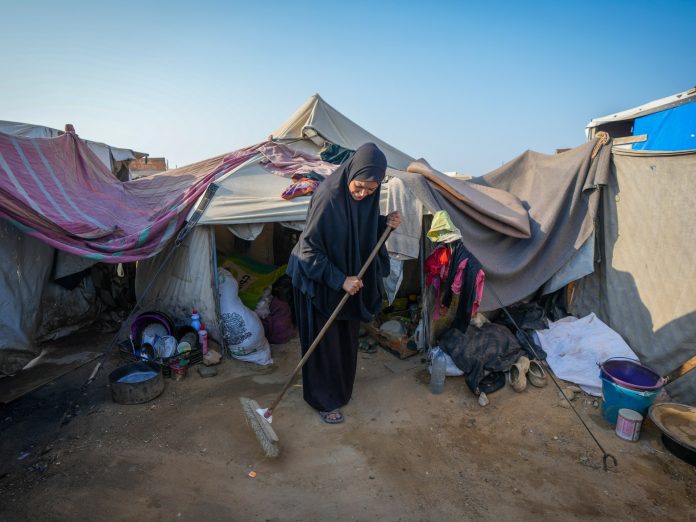Life in Gaza’s tent camps presents additional challenges for women, who face a lack of privacy on a daily basis.
Displaced by Israel’s bombardment, women struggle to maintain modesty in crowded tents shared with extended family members and even strangers in neighboring tents.
To cope with the situation, Alaa Hamami constantly wears her prayer shawl, covering her head and upper body at all times.
“Our prayer clothes have become a constant necessity, even when we go to the market,” lamented the young mother. “Our dignity is compromised.”
Due to the presence of unfamiliar men, she keeps the shawl on even when sleeping, fearing sudden evacuations during Israeli attacks at night.
More than 90% of Gaza’s population has been displaced by Israel’s ongoing conflict, forcing them into cramped tent camps where basic necessities are hard to come by.
Access to toilets and hygiene products is limited, prompting women to resort to using makeshift sanitary pads made from sheets or old clothes.
Wafaa Nasrallah, a displaced mother, struggles to meet her basic needs in the camps, resorting to improvised sanitary pads due to unaffordable options.
With a lack of proper toilets, Nasrallah relies on makeshift facilities shared with many others in the camps.
As winter approaches, the challenges for women in the camps increase, forcing tough decisions between buying essential items like pads or prioritizing food and water.
Over 690,000 women and girls in Gaza are in need of menstrual hygiene products, clean water, and toilets, with supplies running low and prices soaring due to restrictions on aid entering the Strip.
Despite efforts by aid workers, the demand remains unmet, with supplies stuck at border crossings and access blocked by Israel.




